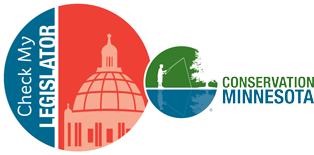The House’s Omnibus Environment and Natural Resources Finance Bill provides funding for state agencies including but not limited to the Minnesota Department of Natural Resources, the Minnesota Pollution Control Agency, and the Board of Soil and Water Resources. Also included in the bill are dozens of policies effecting the environment and natural resources. Some of the policies in this bill included:
-
“No net gain” of state lands, meaning when the state acquires land for things like public boat launches, state park inholdings, or expanding trails, an equivalent amount of land must be sold within that same county.
-
Narrowing the definition of public waters so that thousands of miles of streams and wetlands no longer require 50 ft. riparian buffers, and forbidding enforcement of the new buffer law unless landowners are compensated 100% for the cost of implementing the buffer.
-
Suspending water quality standards that regulate phosphorus pollution and shifting technical decisions about water quality away from scientists and into the courtroom for judges to decide.
-
Moving environmental permit applications through regulatory review faster and in some cases reducing when the public can comment or contest some permits.
-
Forbidding the Minnesota DNR from regulating lead ammunition on public lands.
In addition to the policy provisions, the House bill proposed cutting the budgets of Minnesota’s environmental and natural resource agencies by $10 million during a time when state government has a $1.6 billion surplus.
The House passed the Omnibus Environment and Natural Resources Finance Bill with 80 “Yes” votes against 53 “No” votes. The Governor vetoed this Omnibus Environment and Natural Resources bill on May 12, 2017.
If you would like to let your Representative know what you think of this vote, you can send them a quick note by clicking HERE.
What Would Happen?

A “Yes” vote means the House adopts “no net gain” of state lands policy, narrows the effect of the new riparian buffer law, suspends water quality standards, changes who can contest major environmental permits, and forbids the DNR from regulating lead ammunition on public lands.

A “No” vote means the House does not adopt the “no net gain” policy, does not change the new buffer law, water quality standards remain in place, who can contest major environmental permits remains unchanged, and the DNR retains authority to regulate lead ammunition on public lands.
How The House Voted

A “Yes” vote means the House adopts “no net gain” of state lands policy, narrows the effect of the new riparian buffer law, suspends water quality standards, changes who can contest major environmental permits, and forbids the DNR from regulating lead ammunition on public lands.


















































































































